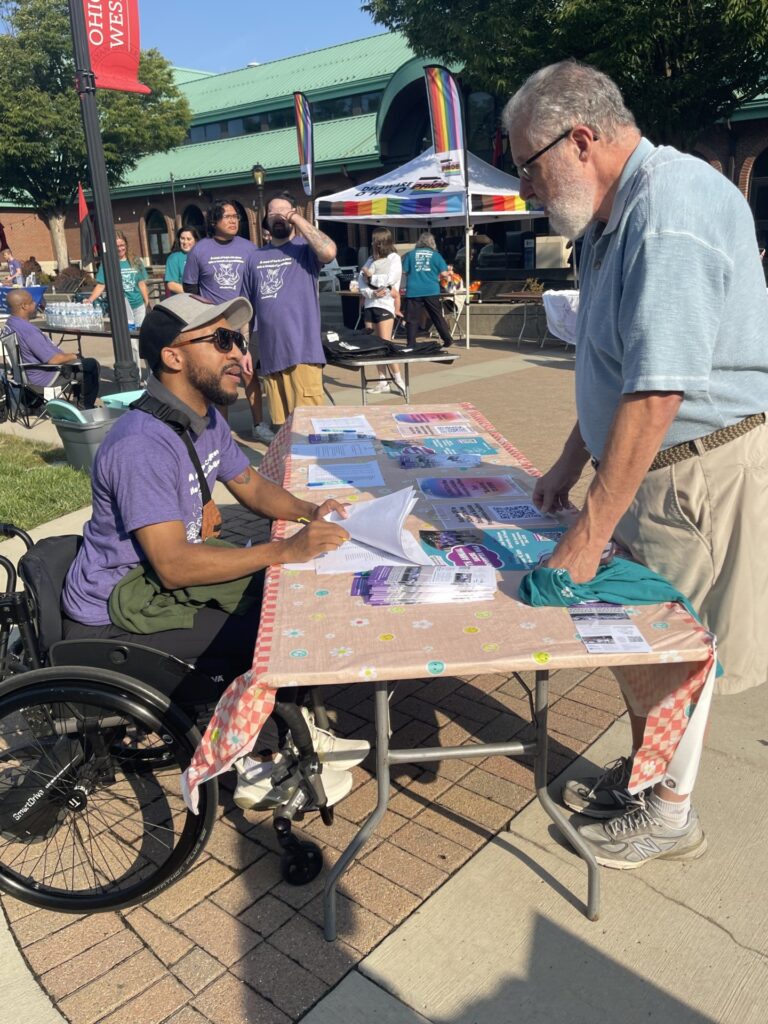
by Ty Lee, Community Engagement Coordinator -Training & Volunteer Resources
Connections Volunteer Center
Richwood Bank presented a program on “Scams, Frauds, and Ways to Avoid Becoming a Victim,” at the July monthly meeting for Senior Companion Program volunteers.
Mike Gillen, Investigative Officer with Richwood Bank, took an unconventional approach by sharing the scammer’s perspective, outlining their strategy.
- Find a Victim – First, a scammer sends out thousands of emails, texts or makes calls in hopes of getting a few responses. This could be a text from someone who acts like they know you, or an email that states there is a problem with an account or delivery. Scammers also make calls pretending to be someone you already do business with. Don’t click links or open attachments.
- Gather the details – Most of us have information online and criminals know where to look and use those details to their advantage. Be careful what you share.
- Convince the victim – Scammers will use romance scams or impersonate famous people. They feed off of people’s loneliness, isolation, and depression, oftentimes with the promise of friendship or love. Gillen said a test he recommends is to say “I don’t have any money” which will usually end the conversation or correspondence.
- Quick & easy money transfer – Criminals will use obscure payment methods and tell victims to lie to their bank. They will ask for cash, gift cards, bitcoin, and wire transfers to get money quickly. There are also still a lot of scams using checks.
- Evade law enforcement – Be careful as fake email accounts are made to look real. A caller ID can be manipulated. Other communication apps, like WhatsApp, Facebook Messenger and others are often used. Don’t trust incoming numbers and emails. Always ask a lot of questions about who is calling, then hang up. Look the number up on your own and call back.
Gillen offered other practical tips to avoid scams:
- Don’t use apps like WhatsApp, Facebook Messenger and Telegram
- Never use gift cards, Bitcoin or honor cash requests
- Slow down
- Only use your real birthday when it is a legitimate request
If you suspect someone is a victim of a crime:
- Watch for signs of unusual activity
- Write everything down and don’t delete emails
- Report to local authorities
- Educate yourself
- Notice how people are acting
Often people will be reluctant to report a scam because they are embarrassed. Resources for more information can be found online at the Federal Trade Commission and FBI Internet crimes websites. Banzai is also an education scam checker and can be found online at www.banzai.org. Remember, there are always new scams being used and your local bank can assist you if you suspect you are a victim.
The Senior Companion Program volunteers help their peers maintain, regain, or extend independent living. Senior Companion volunteers assist frail or isolated older adults with personal errands, grocery shopping, and socialization activities. They can also provide short periods of relief to primary caregivers. Connections Volunteer Center, A Community Program of HelpLine, supports The Senior Companion Program with funding from SourcePoint.






